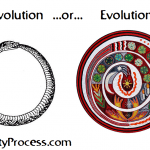
We support a diversity of ideas that stems from an equality of opportunity to share them. However, we feel that all forms of diversity that stems from an equality of outcome (equity) will cause psychological harm to the self-worth of the individuals that it seeks to protect, will limit their potential development as healthy and unique individuals, and will thus limit the value of the ideas that they will be […] Read more »













